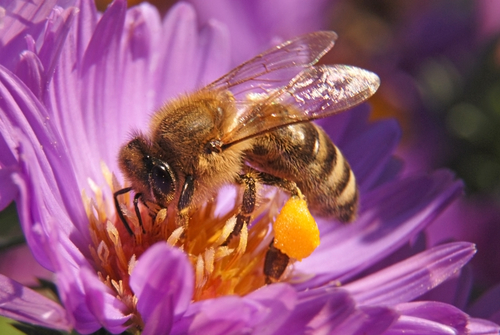
Beekeeper, the sentry of the Environment
Text Tribute to the Day 22 May – National Beekeeper Day
by Lionel Segui Gonçalves and Katia Gramacho.
One of the most versatile professions in the world is the beekeeper, if no, let's see: at a meeting of beekeepers will certainly find, regardless of gender, teachers, religious, military, Engineers, veterinary, biologists, doctors, dentists, philosophers, students, merchants, industrial, artists, economists, scientists, Neofitos, etc. – the list extends -, beyond the purely beekeepers and beekeepers. 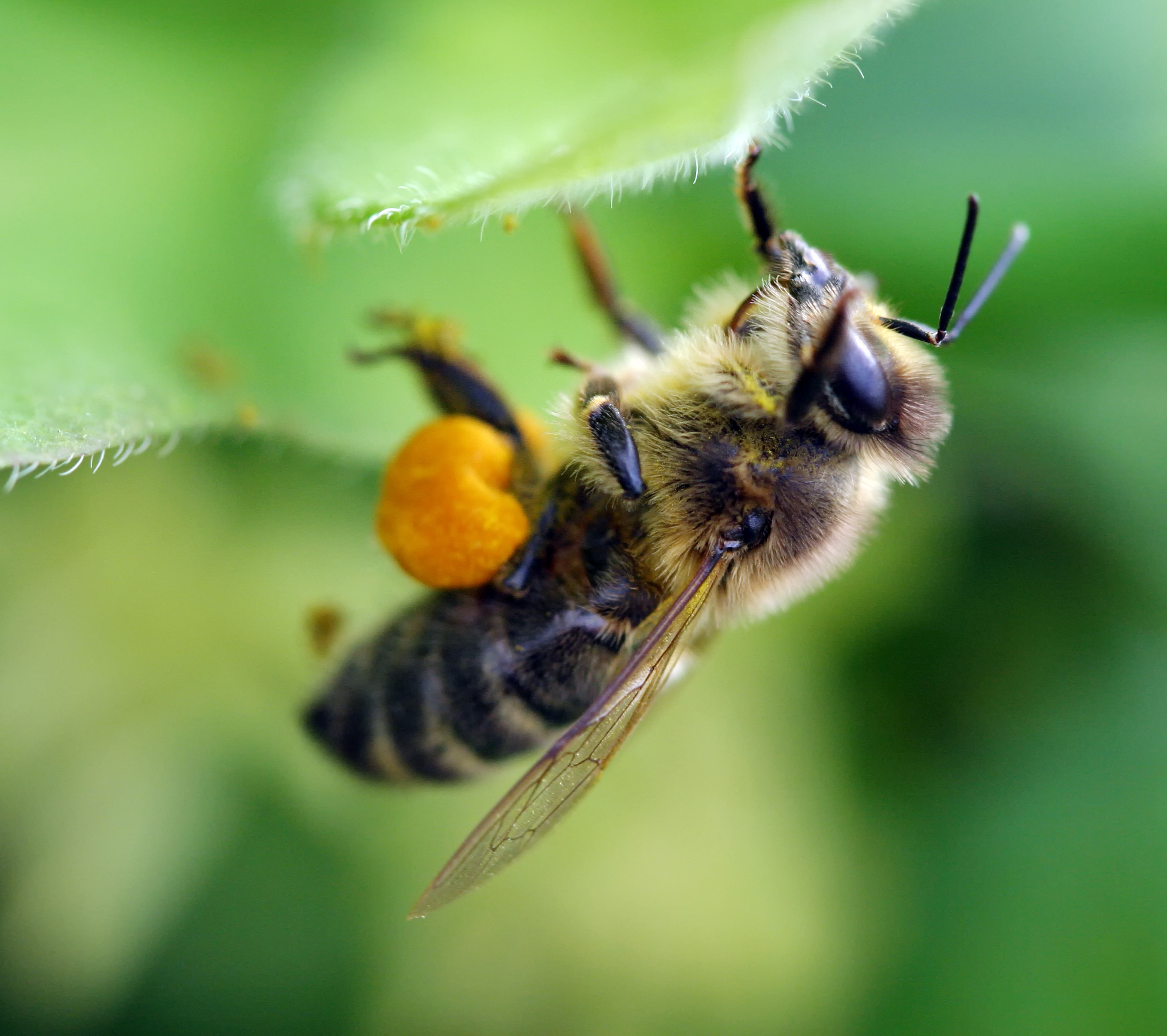 All certainly seduced by the beauty of nature and love for the environment, hence the reason being beekeepers and beekeepers: all caught up in admiration and love for bees.
All certainly seduced by the beauty of nature and love for the environment, hence the reason being beekeepers and beekeepers: all caught up in admiration and love for bees.
As for the interests and goals of each, we can say that are as diverse as amazing. In addition to the enchantment of beekeeping, experienced by all, there are those that promote and live trade in extraordinary products of bees (mel, wax, Royal jelly, propolis, poison, queens, swarms), there are also those who study and publish knowledge about their biology, behavior, etc., there are still those who dedicate themselves to use the hives as odd courseware on raising awareness and approach of the human being of his own nature, mobilizing people for the common good, watching the bees as a model or example of successful social organization; and among many other lovers and breeders of bees, there are those who simply are dedicated to the care of bees as a hobby, form of relaxation, desestresse or possibility of reconnecting with Mother Nature.
The observation and description of the behavior of bees have given the largest and most important prize desired by a scientist, the Nobel Prize. We refer to the Nobel Prize in Physiology or Medicine awarded in 1973 the Austrian scientist Karl von Frisch, by 50 years of studies dedicated to unveil the language of the bees, so, the dance of the bees as communication.
Love and dedication of the men to bees is ancient. There are references in literature and the arts, as well as historical documentation, and even jewelry articles, exhibited in major museums around the world, proving the harmonious relationship between man and bees from the oldest civilizations. Studies hieroglyphics of Egyptian civilization and also elements of classical Greek civilization, between 500 is 300 AEC, prove the recognition of bees as a welfare symbol, health and wealth. European architecture is also revealing the use of hives in the ridge of residences gateway and public buildings, as a demonstration of man's admiration for the society of bees.
More recent examples in history can also be caught; great leaders of humanity also elected bees as a symbol. They wore them on their banners and shields as a model of social organization, to publicly show his followers the principles and philosophies of life. For example, we remember the religious leader, Pope Urban VIII, in the year 1623, to become Pope, He chose for his coat bees. You can still enjoy the Vatican, when entering the main nave of St. Peter's Basilica, sculptures bees that adorn the base of the four columns and the pending flags in the main altar, used only for the religious services of the popes. In the nineteenth century, Napoleon Bonaparte, political leader and French military, He sent that included bee in his military coat, and to be crowned Emperor of France, in 1804, wearing an embroidery imperial mantle with bees, among many other examples of the importance given by men to bees.
There is no living being more important role in preserving biodiversity. Numerous plant species and, consequently, of animals, They depend on the pollination service provided by bees. That its function, guarantor of plant propagation, makes the bees mainly responsible for the existence of plants with flowers and fruits (Flowering Plants) for green areas, woods and forests of our planet. His presence is, therefore, decisive in these areas continue providing food and much of the oxygen we breathe.
Like this, in addition to the tasty honey, ADOCA us that life, and other bee products, as wax, royal jelly, propolis, etc., – all extremely important for man -, that meets explicitarmos 70% of agricultural crops depend on pollination service, and the bees are the main representatives, among insects that carry out this task in nature. lamentably, however, despite all the blessings graciously offered to man, the industrious bees are disappearing from the face of the earth.
The causes of the disappearance of bees and other pollinators on the planet are several. One must consider several factors and even the possibility of joint action, fitting name deforestation, inadequate land use with monocultures, climatic variations and the use of pesticides among the main factors responsible for the decline of pollinators. With specific regard to bees in Brazil, its demise can be attributed, about everything, off and alarming use of pesticides. The Brazil, in addition to bear the bad reputation as a world champion in the use of pesticides on crops, do with the indiscriminate use of systemic pesticides, highly toxic to bees. The neonicotinoids are among the main causes of mass death of bees.
The reduction of news of populations of pollinating insects and their possible consequences have been widely disseminated in the national and international media. It is known today that pollinator decline threatens the world food production, so, food security of humans. The seriousness of the issue, recently discussed and re-discussed in Europe and the United States, motivated, in 2015, Barak President Obama to establish a special task force of his government for the preservation of bees. And given the importance of the issue, the UN included the issue of pollinator decline in meeting in Malaysia, last February, which resulted in important recommendations to all member countries of the special care in defense and protection of pollinators.
Despite these recent initiatives, the lack of pollinators is already a reality today, fact that can be proved by Casey Williams story, disclosed in 21/5/2016, the Huffington Post Australia, about a community in China, in Hanyuan, Sichuan Province, whose rural population, after his bee population decimated by the lethal effect of the indiscriminate use of pesticides over many years, It has been performing the pollination of fruit trees with his bare hands. A dinner Chineses Farmers, hanging from trees, performing the role of bees in pollination of pear flowers, worries us greatly: They would be even capable humans pollinate all the flowers of all the trees and all farmland, making use solely of individual effort and brushes?
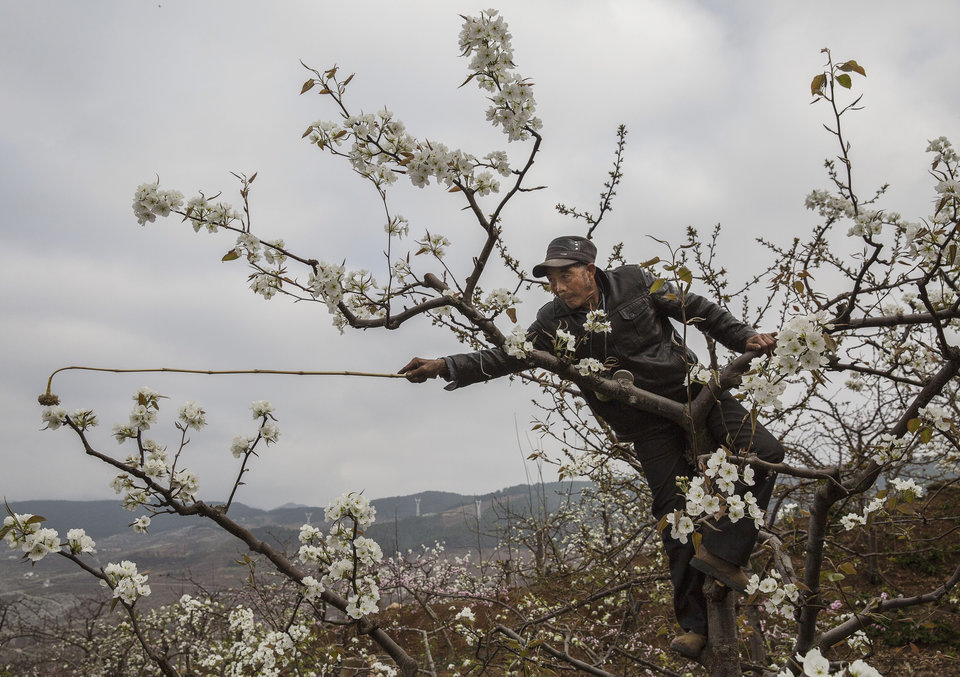
HANYUAN, CHINA, 25/03/16 : Chinese farmer He Guolin, 53, rises in pear trees to pollinate the flowers (Photo Kevin Frayer/Getty Images)
The existence of "man-bee" in China is a sensitive sign of the times, and the news coming from China should serve as a warning to the whole world, it mirrors the future reality to be faced by all countries with agricultural vocation. And there is no time for despair, We need to react promptly to the notice.
After about 300 thousand beekeepers and beekeepers in Brazil, that make our country one of the major world powers bee, it will be the task of joining the bees! No paper lovers, caregivers and advocates Bees, meets them not only the task of protecting bees, but also to share the awareness that already have about the importance of these insects to man and the environment. Revive yourself in that moment the words of Mr. Gilles Ratia, former President of Apimondia: are they, beekeepers, truly, our great ENVIRONMENTAL SENTINELS. beekeepers, our sincere congratulations on the Day of the Beekeeper.
UFERSA / RN, 22/5/2016.
Prof. Dr. Lionel Segui Gonçalves is prof. retired holder USP / RP, geneticist and researcher on bees, visiting professor of UFERSA -Mossoró / RN, and founder of the NGO “Bee or not to be” who leads the campaign “No Bee, Without food”.
prof. Pull. Peres Gramacho is Katia doctor in Sciences, USP / RP postdoctoral at the University of Minnesota (USA). It is full professor and collaborator of the Post Graduate Program in Health and Environment-UNIT, and professor in beekeeping in UFERSA – Mossoro / RN. Member of the Scientific Technical Committee of the Brazilian Confederation of Beekeeping (CBA).


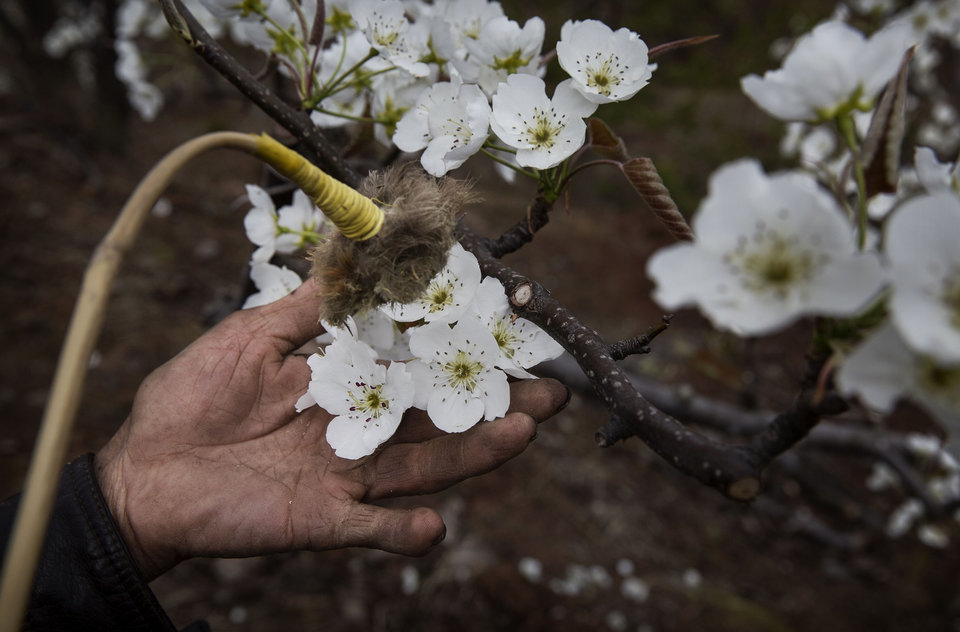
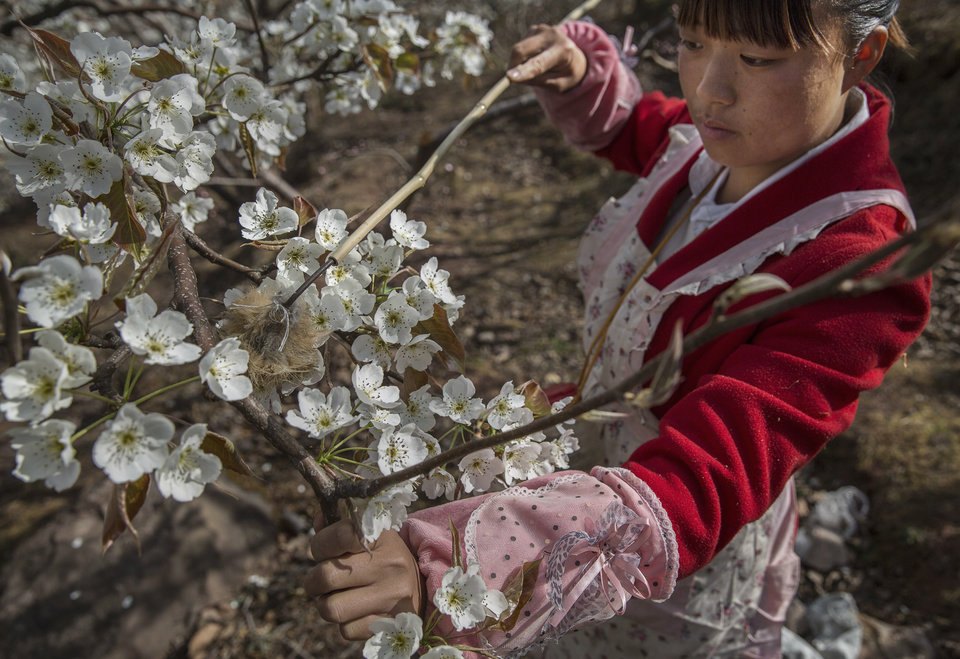
Sorry, the comment form is closed at this time.